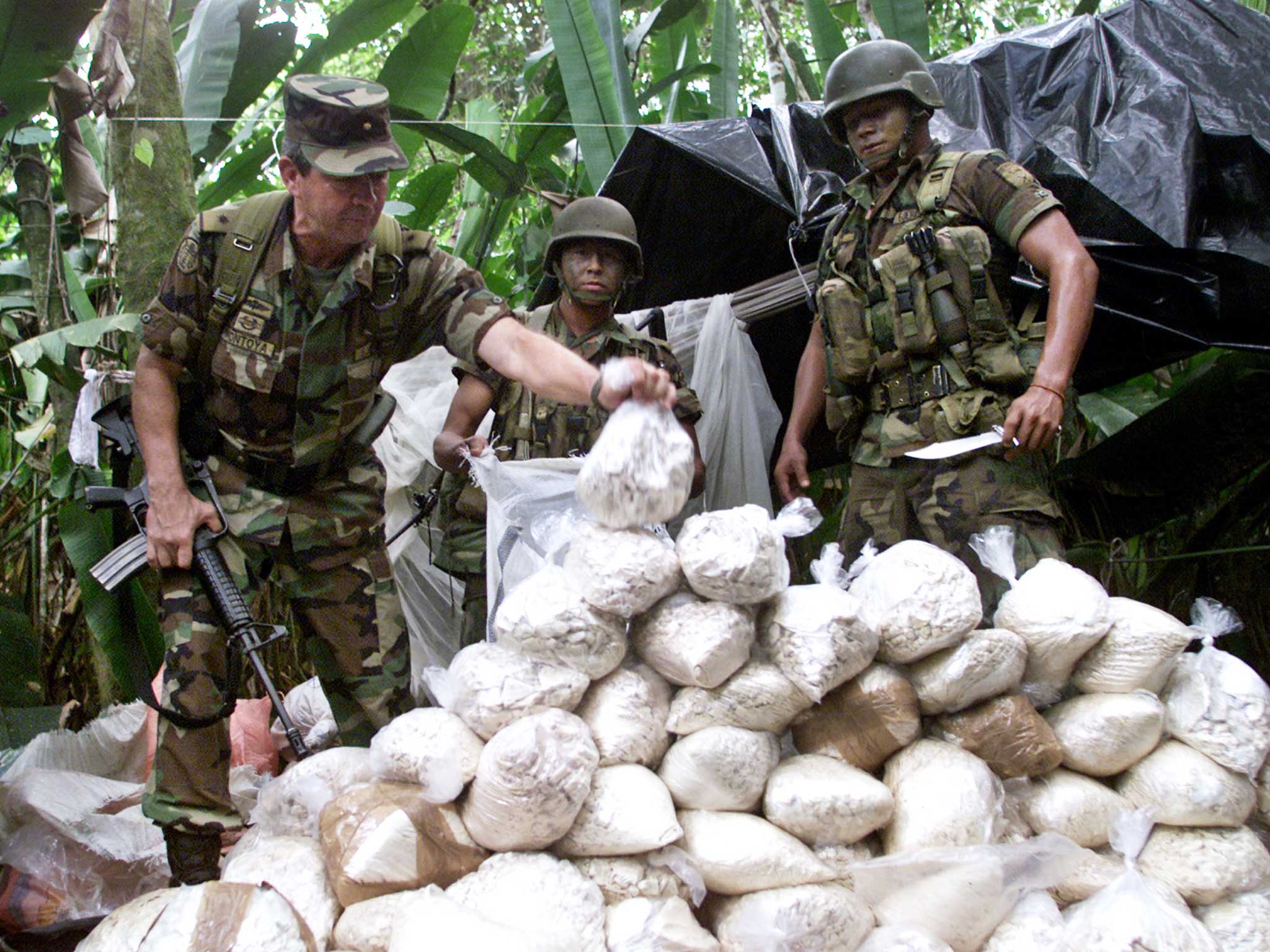Time for a truce in the War on Drugs
An estimated $100billion a year is spent on anti-drug law enforcement activities and yet the trade in illegal narcotics only continues to grow

As the last century drew to a close, and the West continued to congratulate itself on reaching the ‘End of History’ and the sunny triumph of liberal democracy, the United Nations announced a bold ambition – to secure a “drug-free world”. With communism having been overcome, the cycle of economic boom and bust seemingly broken, declaring war on an illegal, global trade must have felt to some like the next step towards social nirvana.
Eighteen years later the world feels like a very different place on many counts. As for the much-vaunted war on drugs, few can doubt it has been roundly lost. An estimated $100billion a year is spent on anti-drug law enforcement activities and yet the trade in illegal narcotics only continues to grow – it is thought to be worth up to $500billion annually. The criminal gangs which increasingly dominate the global drugs scene are prepared to do whatever it takes to maintain the upper hand.
With this in mind, the United Nations General Assembly meets this week in special session in New York to reconsider the treaties which have steered the hardline strategies of national policymakers. It is a crucial moment, although debates are likely to be heated. For all the evidence against maintaining the status quo, some countries – notably Russia and China – still regard drugs as primarily a law enforcement issue. Those who would recast it as a matter of public health, or perhaps reframe it both on an individual and societal level within the context of “reducing harm”, face a battle of their own.
Indeed, it is clear that there are already cracks in the charade of global drug-fighting unity. The United States, for so long the bastion of prohibitionism when it came to narcotics, has nudged to the forefront of cannabis legalisation. Medicinal use is permitted in 23 states; four of those allow recreational use too. Just over fifty per cent of Americans support decriminalisation of marijuana. Polls in the UK have found a similar proportion of the public here share that view. In Canada, Prime Minister Justin Trudeau won an election having pledged to legalise cannabis.
Attitudes towards more potent drugs may be less tolerant but there is a growing recognition that approaches towards serious addictions to substances including heroin have misfired. Several countries already operate drug consumption rooms, where serious addicts can obtain and take heroin in a safe environment without fear of arrest. This reduces health problems associated with the use of dirty needles and obviates the need for addicts to engage in criminality so they can pay for their hits.
It is not just in developed nations that the facts on the ground are prompting a rethink. In Central and South America, governments have expended vast resources in a bloody and futile fight against the drug cartels. In Mexico alone, there were 165,000 documented homicides in the seven years to 2014 – many of them (over half by some estimates) connected to the drugs trade in one way or another. This week’s meeting of the UN General Assembly was prompted as much by despairing pleas from Latin American governments as by the desire of Western liberals to smoke pot in peace.
Nobody would claim that the drugs issue is straightforward. Many illegal substances cause horrible damage to users’ health and the idea that the world should take anything other than a zero tolerance approach to narcotics will horrify some. But we need to have a more sensible debate: complex problems are not resolved by the use of blunt instruments and the UN would do well to adopt a more nuanced position. The dogmatic notion that a drug-free world is achievable ought to be consigned to the dustbin of history.

Join our commenting forum
Join thought-provoking conversations, follow other Independent readers and see their replies